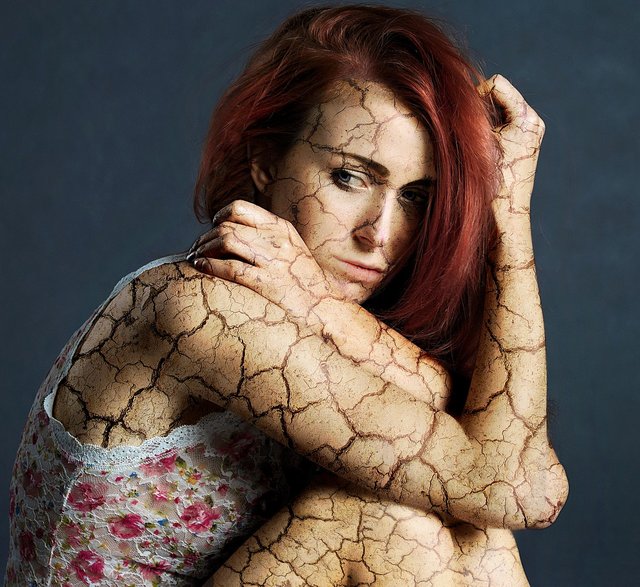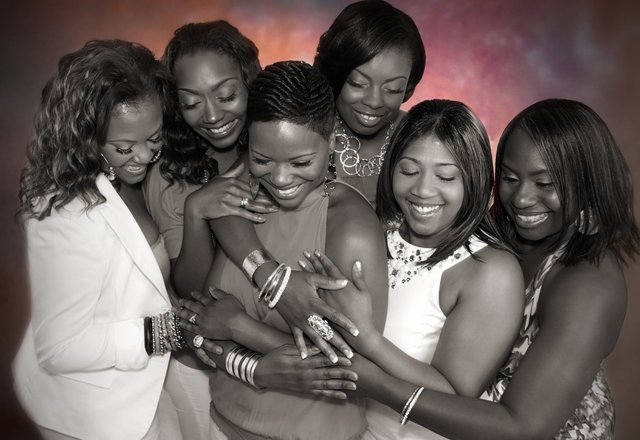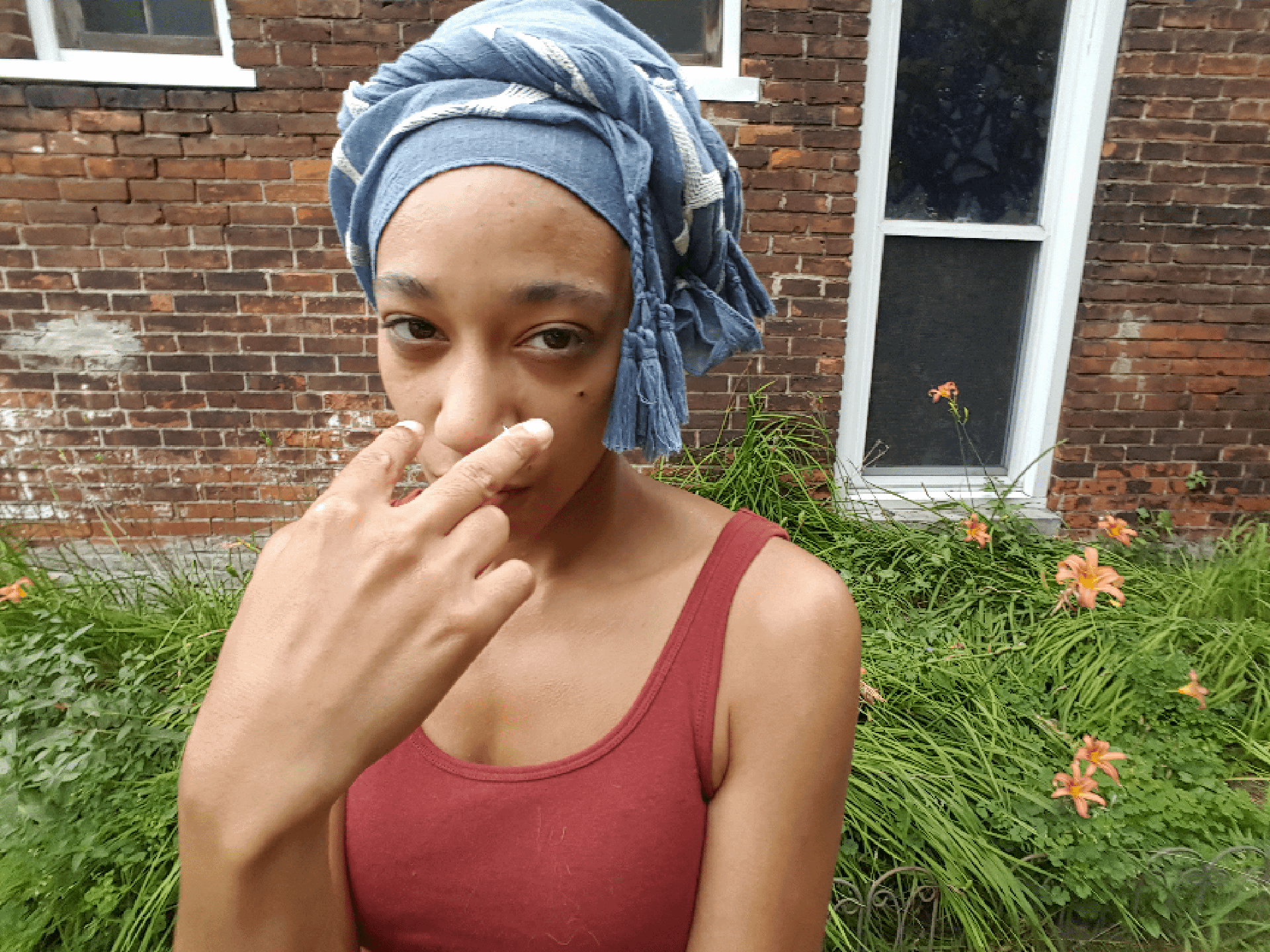Invisible disease? I see **YOU**

It’s been said “our bodies are our temples” but for some us—our bodies are our prisons. Our tormentors. The noose that tightens whenever you get the vague notion you could do more. I’m speaking about living with a chronic disease. Not every condition is so blatantly obvious and allows us to be visibly marked as ill. So many of walking this planet have an invisible disease that affects us in ways healthy people probably couldn’t fathom—and some of us refuse to allow it to invade our hunger to experience life.

via giphy.com
WTF is an “invisible disease?” Could you be anymore cryptic?
First off, unknot your nerves for a second, this isn’t going to be one of those gloomy, emo-type posts. For those of you not familiar with the concept of an “invisible disease,” it’s referring to people who are living with a chronic disease, but on the outset appear healthy. Often (not always) the person has some sort of auto-immune related disease. I would say the best known invisible diseases are diabetes, psychiatric disorders (schizophrenia, bipolar disorder etc.), severe allergies and food intolerance, heart conditions, and multiple sclerosis to name a few.
Many people will be completely unaware they even have an invisible disease until they start showing sever symptoms or end up taking an extended stint in the hospital. No thanks to the rising cost of medical care in the United States, people have gone years without getting treatment and by the time they begin it, the disease has caused some major damage.
Spending most of your 20s in a hospital bed
Imagine your first semester of college is nearly over. You’ve barely gotten to enjoy all the excitement of your new found adulthood, when suddenly over the course of a few days… you start feeling like…well… shitty. Starts off as a dull pain in your right side like the sting of a fresh bruise. Then it steadily blossoms into excruciating agony where it feels like your right side is being ran through a blender whilst acid is poured on the wound. You lay suffering on the couch for hours willing this torture to end—belly feeling like molten lava is threatening to explode from your body at the slightest touch.
Your family rushes you to the Emergency Room because now you’re howling like a solider who’s just been shot. Your mind is blank thinking only of the pain. Finally, the warm embrace of narcotics washes over your body… peace. You don’t care that doctors are poking and prodding at your broken body. You try not to panic as they suggest you head to surgery for an unknown cause. You give in to the drugs nagging at you to fall asleep…

via giphy.com
That was basically how the first of many enchanted trips to the hospital began for a young man named A.J.*, the son of one of my father’s colleagues. At age 18 his doctor announced that he had Crohn’s disease. Over the years his symptoms worsened as he tried treatment after treatment to reign in the disease. He became socially isolated at university since he couldn’t drink without suffering horrible bouts of diarrhea or cramps. Forming romantic relationships was next to impossible because his symptoms became a source of embarrassment.
A.J.’s college years were not as fun as they could have been. He along with his doctors gave him a stigma, put himself on a leash, and often saying with a frown “No, I can’t.” He bounced in and out of the hospital at least four or five times within a four-year span. Once he had to spend Christmas Eve in the E.R. because he got so dangerously dehydrated (it took like five 1000ml IV bags of saline to fix him up). A.J.’s Crohn’s became so severe he began taking massive doses of opiates just to make it to class. Then one day after years of feeling like a leper, a social outcast, and in constant suffering—A.J. fatally overdosed on the same pills meant to bring him relief. He was 23 years old.
My father told me this story as a stark reminder not to exclude people. A.J. had no one to express his frustrations with, no friends to lend a sympathetic ear. Think if he just had one person on his team…

If someone tells you about their disease—DON’T TREAT THEM DIFFERENTLY
One of my best friends and former colleagues recently found out she had Bi-polar Disorder Type II. The news was quite jarring and she had an intense time coping with it plus the new medication prescribed to stabilize her mood. She felt like no one could grasp how intense it is having to wonder what mood you were going to be on any given day. Despite what people perceive a bi-polar individual to be, I still only see the friend that got lost hiking with me, who helped me eat more like a vegetarian and danced the weekend away to psy-trance with me deep in the forest. I don’t treat her like a time bomb waiting to go off in an episode of hyper mania. Nor do I treat her like a person who needs to have all sharp objects hidden from when she’s depressive. I will never take it too personally when her mood causes her to lash out at me.
The second people hear someone has a disease, they get curious puzzled looks followed by unnecessary sympathy. They’re not dying people! Nobody with invisible diseases don't need or want to be the object of your pity! Employers should especially take note—they tend to see the disease typed up neat on a file and start formulating assumptions. They can still do everything else the rest of the world does, let them worry about the adaptations or limitations they need—they’re used to making adjustments.

via giphy.com
Be inclusive! Fundamentally, not everyone is debilitated by a disease; it varies from one person to next. I know I would like to at least have the opportunity to refuse a particular activity or food stuffs rather than have someone be on nanny patrol and deny me because they “know” best (okay, unless that person is a specialist and knows what they are talking about).
By the way it’s not typically rude to inquire more about a person’s medical condition—especially if it’s not something you are familiar with. However, not everyone is comfortable explaining their disease. Trust me, it can become a pain in the ass having to explain things. Then you wonder if people are attributing certain behaviours to your condition. Bottom line is: see beyond the diagnosis! People are not their disease, it’s just one facet of a much richer identity.
To my peers with underlying issues
I’m writing all this for all the people who are or have recently been feeling down about not being normal. So, I want to shout out to all my autoimmune/invisible disease carriers, don’t adopt this mentality of being an invalid. You are not fragile, you are strong. Whenever possible, never allow your disease to keep you from living. Never stop searching for your limits and be bold enough to push beyond them any chance you get. You know your mind and body better than anyone, but don’t fear challenging it. TRUST YOURSELF.

Carpe diem people!
It’s not impossible, just do your research and find out if your doctor can tweak your treatment plan to improve quality of life. You should be very in tune with your body’s abilities and be not afraid to basically harass all your doctors into finding solutions so you can partake in activities safely.
I see you, my fellow humans. Fuck wishing you were “normal.” In a perfect world none of us would have anything wrong—but the world is chaotic and imperfect. It’s okay that you’re not. The only “normal” you should be trying to achieve, is the one where you have reached your state of feeling alive and blissful with a sense of homeostasis.

I see you, even if you feel invisible.
*Out of respect the name has been changed.
This post has received a 5.14 % upvote from @booster thanks to: @puddinpaws.
To listen to the audio version of this article click on the play image.

Brought to you by @tts. If you find it useful please consider upvoting this reply.
Beautiful post. I don't think it's a disease in the normal sense either. Everyone has good and also bad days, but sometimes the bad ones last a little longer. Being inclusive is important, making someone feel worse about themselves will only make them do exactly that... Feel worse.
Everyone is a person, and more people need to learn to care for one another—especially with how easily everyone is connected together through technology. Even people such as myself who are curently working on things, just because of a "condition" a "label" I shouldn't have to limit how much I can enjoy my life.
I see you too! 💗
Exactly! I had to remind my friend that this was not something she needs to feel tethered to.
I see everyone for who they fundamentally are! Spread the love!
A little reminder once in a while never hurts. Going through a struggle or not, everyone has worries.
People have more depth than we can imagine ourselves. Ironically, we are all people. There's always enough love to go around!~
Humand kind has centuries on earth, and it is always learning of it self. Your article is a good contribution to that knowledge @puddinpaws.
By the way, few days ago I just sent the Part II of the first post, and still working on some other ideas, and your suggestions, to post later. If you can please review it, thanks a lot!
Congratulations @puddinpaws! You have completed the following achievement on Steemit and have been rewarded with new badge(s) :
Click on the badge to view your Board of Honor.
If you no longer want to receive notifications, reply to this comment with the word
STOP